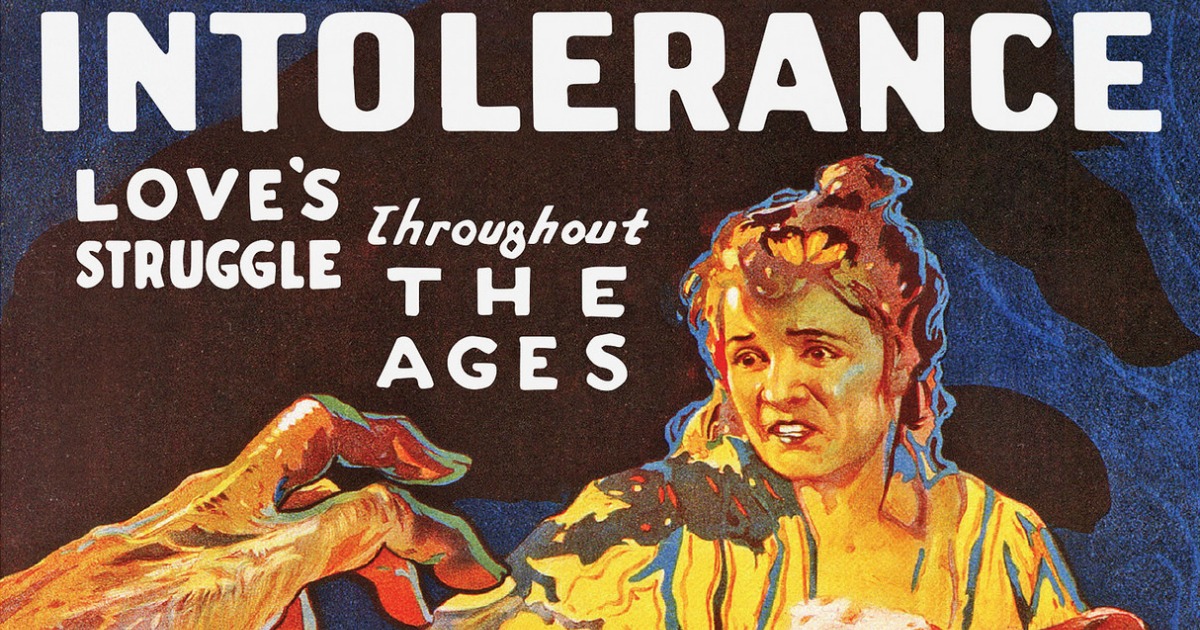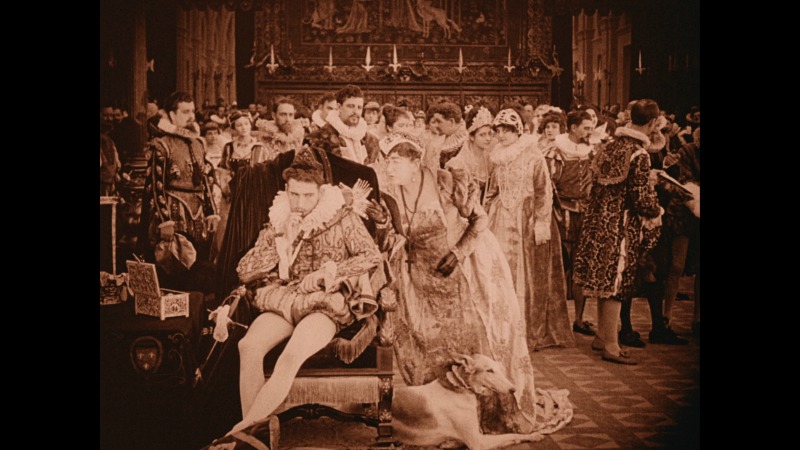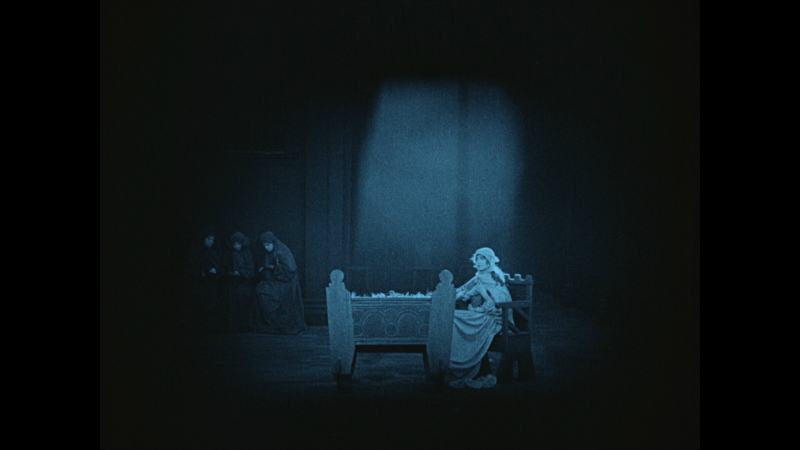
For decades, the sort of standard party line on Intolerance is that Griffith made it as a sort of apology for The Birth of a Nation, which was released to mass protests and extensive censorship battles due to its overtly racist ideology. Indeed, the blatantly-stated theme of Intolerance – that the titular word is at the root of all suffering, worldwide and across time – would naturally include the actions depicted as heroic and attitudes towards black Americans in The Birth of a Nation. Griffith was being intolerant, then he made a film about how bad intolerance is, so clearly the two are connected…right?
“He didn’t feel he had anything to apologize for,” Kevin Brownlow plainly states in an interview on Masters of Cinema’s new Blu-ray edition of the film. Brownlow, a scholar of silent film who oversaw the restoration of Intolerance, has personally spoken with several of Griffith’s collaborators over the years, and would know as well as anybody what Griffith’s attitudes were as he readied to make what many now consider to be his masterpiece. Never mind that, as apologies go, this would be one of the more elaborate – a three-hour epic in a time when most films ran a fraction of that, with action taking place in four different eras across nearly 2500 years, and a production budget that greatly eclipsed the standard.

Bolstering the party line, however, is the film itself, which feels quite apologetic, ingenuously optimistic, and not a little bit posturing. The Birth of a Nation, as immoral as it may be, is as fervent as they come, aesthetically and often emotionally enthralling – only Triumph of the Will comes close in causing a similar push-pull between its hateful narrative and its exciting filmmaking. Intolerance has its share of breathtaking sequences, most notably the final thirty minutes or so, as characters from each time period race towards their inevitable fates. The experience of getting there is considerably more labored, pausing too long between the stories and too explicitly stating the purpose of each scene to allow for much emotional involvement. Griffith’s trademark is in the relation between images – though he wasn’t the first to do many of the things with which he is often credited (the close-up, the fade-out, the flashback), he utilized them expertly, drawing galvanizing connections and action sequences that remain exciting to this day. Too much of Intolerance, though, is spent reminding the audience where we are, who the characters are, and how they relate to one another to make those aesthetic connections land. The sections that work are among the greatest ever devised in cinema, and the central connecting force – a woman (Lillian Gish) rocking a cradle as we move between eras – is such an overwhelming piece of iconography that, even if you’ve never seen it before, instantly becomes etched in your memory as one of the great images of all art. It’s just a long road in between those moments.

Masters of Cinema new (Region B locked) Blu-ray edition sports the same transfer as the Cohen Media Group edition, which that company oversaw and funded. It has the same limitations I often find in American restorations and transfers – nice and sharp, with good attention to detail and contrast (the ultra-wide shots of the Babylon sets in particular really show this off, in the cast-of-thousands sense of things), beautiful colors (much of the film is tinted), but lacking in depth and dimensionality. It’s mostly a very flat presentation. It’s a nearly 100-year-old film, so damage is about what you’d expect, but hardly intrusive, and stability is nicely managed.
The big bonus feature in the set are two additional films by Griffith reworking and expanding on the Babylon and modern-day sections of Intolerance. The modern-day section in particular (titled The Mother and the Law) works very well on its own, and makes for a nice inclusion. Both films are in very good shape as well; no mention is made of the extent to which they were restored, but they look nearly as good as the feature. We also get the aforementioned twenty-minute interview with Kevin Brownlow, and a booklet with “vintage and modern reports, reflections, and essays on the film” (I did not receive a copy, so that description comes directly from Eureka).
Without being able to judge the booklet, which usually gives the MoC edition the edge in all things, I can’t say to what extent this is more worthwhile than the Cohen disc, as each are nearly identical otherwise (the Cohen disc adds a 2-minute trailer, posted below). But this does do a very fine job presenting this landmark film.


